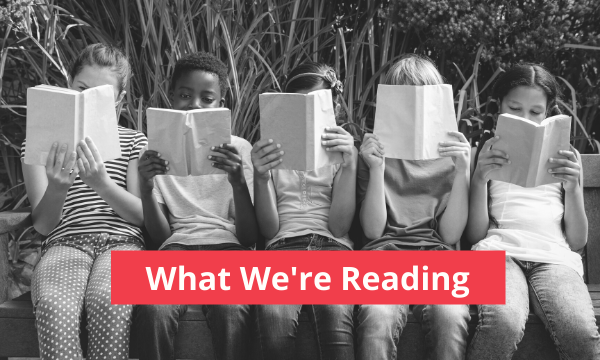A report from Portland State University’s Center for Improvement of Child and Family Services (PSU CCF) spotlights the first year of the Early Childhood Equity Fund program (ECEF).
The report is divided into three parts:
- Part 1 describes the key findings from the implementation evaluation
- Part 2 summarizes findings from the data capacity assessment
- Part 3 proposes the Equitable Evaluation Framework
Key findings will inform Children’s Institute’s ongoing early childhood advocacy efforts, and program and community engagement work.
Background
In 2016, the Early Childhood Equity Collaborative (ECEC) first organized to “engage the voices of communities of color who were not being heard in critical discussions about the funding and policies relating to their children.” The main purpose of the collaborative was to generate awareness and advocacy to increase state investments in culturally specific early learning and family support programming.
Acronym List
ECEF Early Childhood Equity Fund
ECEC Early Childhood Equity Collaborative
PSU CCF Portland State University Center for Improvement of Child & Family Services
In 2019, Oregon’s legislature approved the ECEF as part of the Student Success Act, providing funding for culturally specific early learning, early childhood, and parent support programs. In the 2019-2021 biennium, 30 program grants and five planning grants went to grantees across Oregon.
Key findings from this report will inform Children’s Institute’s ongoing early childhood advocacy efforts, and program and community engagement work.
Part 1: Implementation Evaluation
This part of the report outlines the findings gathered throughout the Year 1 Implementation Evaluation, with a focus on two outcomes: delivering early learning services using culturally specific methods, and increasing grantee organizations’ capacity to deliver services.
The evaluation team used three methods to collect data:
- Reviewing existing documents, reports, and data
- Completing qualitative interviews with representatives from each of the ECEF grantee programs
- Completing qualitative interviews with Early Learning Division staff
Culturally specific services
Grantees showed that they had strong community connections and demonstrated several successful strategies in delivering culturally specific services, including:
- Implementing culturally specific program models
- Valuing cultural celebrations and traditions
- Giving attention to community language requirements
- Focusing on family agency and advocacy skills
- Adapting practices when providing virtual services
- Demonstrating flexibility and responsiveness to family needs

COVID-19's Impact on Program Implementation
Many of the ECEF grant proposals were submitted before the COVID-19 pandemic and the subsequent closures across the state. Program implementation mostly started after March 2020, and continued throughout the pandemic. Throughout the course of program implementation, the pandemic had a profound impact on grantees’ ability to provide services, effectively serve families, and hire and train staff. However, grantees showed extraordinary innovation, commitment, and tenacity all while continuing to center families at the core of their work.
Increased organizational capacity
Findings also indicate that grantees’ organizational capacity increased. The implementation evaluation showed success in:
- Recruiting, hiring and training staff who reflect the communities served by the organization
- Supporting comprehensive staff training and supports for staff well-being
- Leveraging partnerships and other resources
Part 2: Data Capacity Assessment
Part 2 of the report summarizes information about grantee organizations’ data systems, needs for data-related support and technical assistance, and strengths in data-related processes among the grantees. The Year 1 Evaluation highlights several success strategies related to data tools and systems, as well as data use:
Data collection tools and systems
Technological aids
Before the pandemic, data were most often gathered using pen and paper, e.g., parent surveys. However, many organizations quickly adapted to successfully collecting data using websites, email, QR codes, or surveys sent to families via smart phones. In particular, grantees found success using QR codes because of the varying access to technology in participant communities.
Culturally specific and trauma-informed data collection
Participating organizations were able to collect meaningful data from their communities, by building trusting relationships, prioritizing the needs and strengths of families, and ensuring that forms and information gathering tools were available in families’ first languages.
Trained and dedicated staff
Having adequately trained, supported, and long-term staff is key in collecting data that is trauma-informed and culturally specific. Staff also often shared similar cultural backgrounds and experiences as grantees, which likely helped them in forming trusting relationships with families and communities.
Data use
Using family feedback to adjust programs and services
Families provided input to help guide organizations’ approach to developing appropriate services that were also COVID-safe. Feedback was collected through surveys and interviews after families participated in services.
“Our organization held Zoom meetings with parents on what’s working and what’s not working online. We are working on building a support group for families and parents since all are virtual and tailor to their capabilities.”
– ECEF Grantee
Use of community needs assessments
ECEF grantees assessed their community’s needs in a number of ways, including focus groups, program participant feedback, leadership circles, elder and youth advisory groups, needs assessments, and data collection. This was successful in providing a more holistic view of the community’s needs.
Intentional partnerships
Grantees described the ways that they partner with other organizations to gather and use data to support their communities. Partnerships included shared decision-making processes, community ownership of data, and opportunities for joint ownership.
Part 3 – Equitable Evaluation Framework
The PSU CCF evaluation team is using a framework and approach, developed by Ann Ishimaru and colleagues at the University of Washington, called Data Inquiry for Equitable Collaboration; an evaluation model where grantees drive the evaluation process at every step. Specifically, they decide what questions to ask, define what “data” means, decide what data to collect, and how to collect it. They also collect the data itself, make meaning of the data, and use that to support organizational change. There is an opportunity here for the ECEF evaluation to transform power, support collective learning, strengthen organizations, engage communities, and drive systems change.
Next Steps
The evaluation framework is meant to serve as a guide for co-design and collaborative planning and implementation for the ECEF evaluation, while supporting grantees and communities to be leaders in decision-making. The next steps in this work are to continue to revise the process, finalize the framework and ultimately, co-design an evaluation that aligns with legislative requirements while also shifting mainstream dominant understandings and elevating the unacknowledged role of culturally specific organizations and services.

